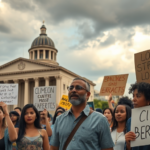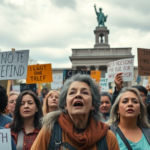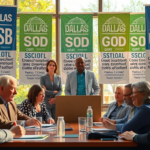I’m sorry, it seems there was a mix-up in the previous instructions. Let’s focus on crafting a detailed article related to the editorial about the conflict between parliamentary privilege and partisan politics in Canada based on the summary provided.
Parliamentary Privilege and Partisan Politics Clash in Canadian Political Arena
The intersection of parliamentary privilege and partisan politics has taken center stage in Canada, as a heated political altercation unfolds in the country’s Parliament. The crux of this conflict emanates from a standoff involving the Conservative Party’s strategic filibuster in response to the Liberal government’s reluctance to disclose critical documents linked to a controversial “green slush fund.”
Conservative Filibuster Halts Parliamentary Proceedings
In a bold move that underscores the tension, the Conservative Party has initiated a filibuster, drawing attention by effectively stalling the operations of Parliament. The filibuster aims to pressure the Liberal government into releasing documents associated with Sustainable Development Technology Canada (SDTC), a now-defunct government-backed organization accused of distributing taxpayer money to green companies without adequate oversight.
Conservative House Leader Andrew Scheer has escalated the situation by formally requesting Speaker Greg Fergus to hold the Liberals in contempt of Parliament for their refusal to produce the requested documents. This request has heightened the stakes and placed immense scrutiny on the actions of the ruling party.
The Call for Accountability and Historical Parallels
Critics of the Liberal government argue that the refusal to comply with document requests underlines a disregard for parliamentary accountability. The editorial from the Toronto Sun draws historical comparisons to incidents like the 2012 Ontario legislature turmoil. Then, under Premier Dalton McGuinty, the Liberals were similarly found in contempt for withholding documents related to the cancellation of gas plants, provoking McGuinty’s eventual resignation.
The editorial proposes that Speaker Fergus should consider these precedents and offer the Liberals a final opportunity to comply. Failure to do so would, as the editorial argues, necessitate declaring them in contempt. It also suggests that Prime Minister Justin Trudeau should either resign or call a federal election if the documents remain undisclosed, challenging his leadership’s commitment to transparency.
Impact on Canadian Politics and Community Reactions
The impasse has significant implications for Canadian politics, underscoring the fragile balance between legislative transparency and partisan maneuvering. It sparks broader questions about governmental accountability in the face of political allegiances and priorities. Residents and political analysts alike are paying close attention to this display of political theater, as its resolution (or lack thereof) could set important precedents regarding governmental transparency and parliamentary authority.
Local political commentator and expert Dr. Sarah Thompson remarks, “This situation is pivotal for Canadian politics. It serves as a litmus test for how parliamentary privilege is upheld or subverted by political interests. The outcome could redefine the expectations of transparency and accountability from our elected officials.”
Previous Events and Continuing Controversies
The controversy surrounding the SDTC and the allocation of funds to green companies isn’t the first of its kind in Canadian politics. Similar issues of financial scrutiny and governmental transparency have arisen in the past, compelling citizens and politicians to reevaluate the extent of oversight in governmental spending practices.
Community member John Hamilton, a small business owner, voices concern over the government’s handling of taxpayer money. “It’s not just about policy; it’s about trust. If they’re not willing to be transparent with how they allocate funds, how can we trust any of their decisions?”
Future Implications and the Path Forward
As Canada watches this political spectacle unfold, there are potential long-term implications on the horizon. Should Speaker Fergus declare the Liberals in contempt, it could catalyze shifts in political dynamics and potentially hasten electoral timelines. Conversely, compliance from the Liberal government might defuse immediate tensions, though it would not eliminate the underlying questions about transparency and fiduciary responsibility.
Moreover, how this conflict is resolved could influence the handling of similar situations across the Commonwealth and set benchmarks for political accountability.
Resources for Political Engagement
For those interested in deeper engagement with political processes and understanding the implications of this ongoing issue, local community organizations and educational forums provide valuable resources. Engaging with representatives through public forums, or accessing detailed information provided by governmental watchdog associations, can equip citizens with the knowledge to participate meaningfully in democratic discourse.
This unfolding saga highlights the critical role of parliamentary procedures and the perpetual tug-of-war between privilege and politics—a narrative not only shaping the current political landscape but also mirroring global challenges in governance and transparency.
The stakes remain high as Canadians, and indeed the international community, await the next developments in this defining moment of political history.







